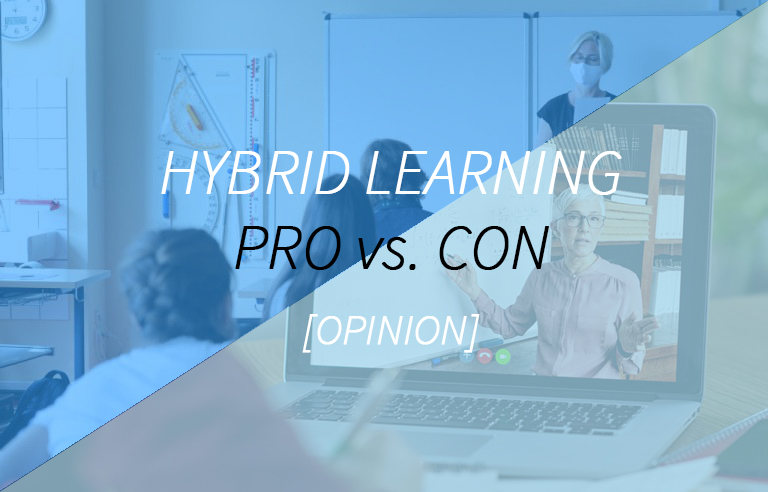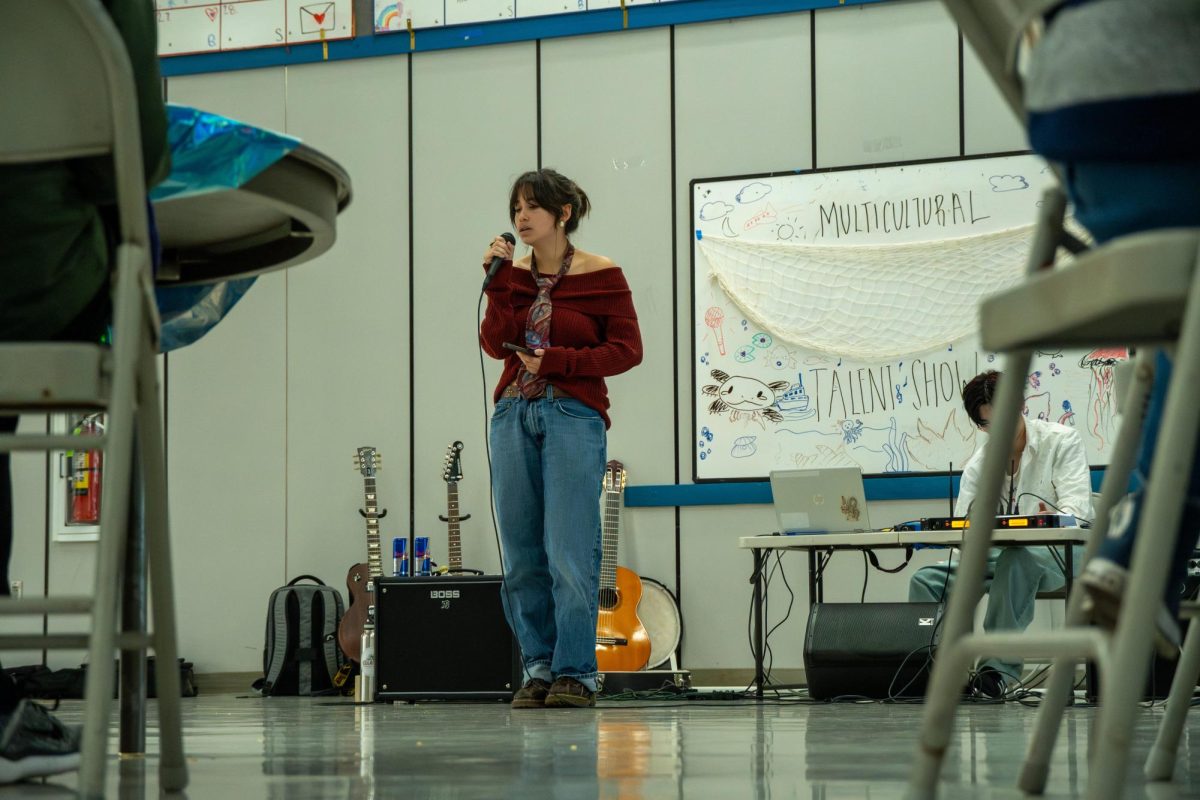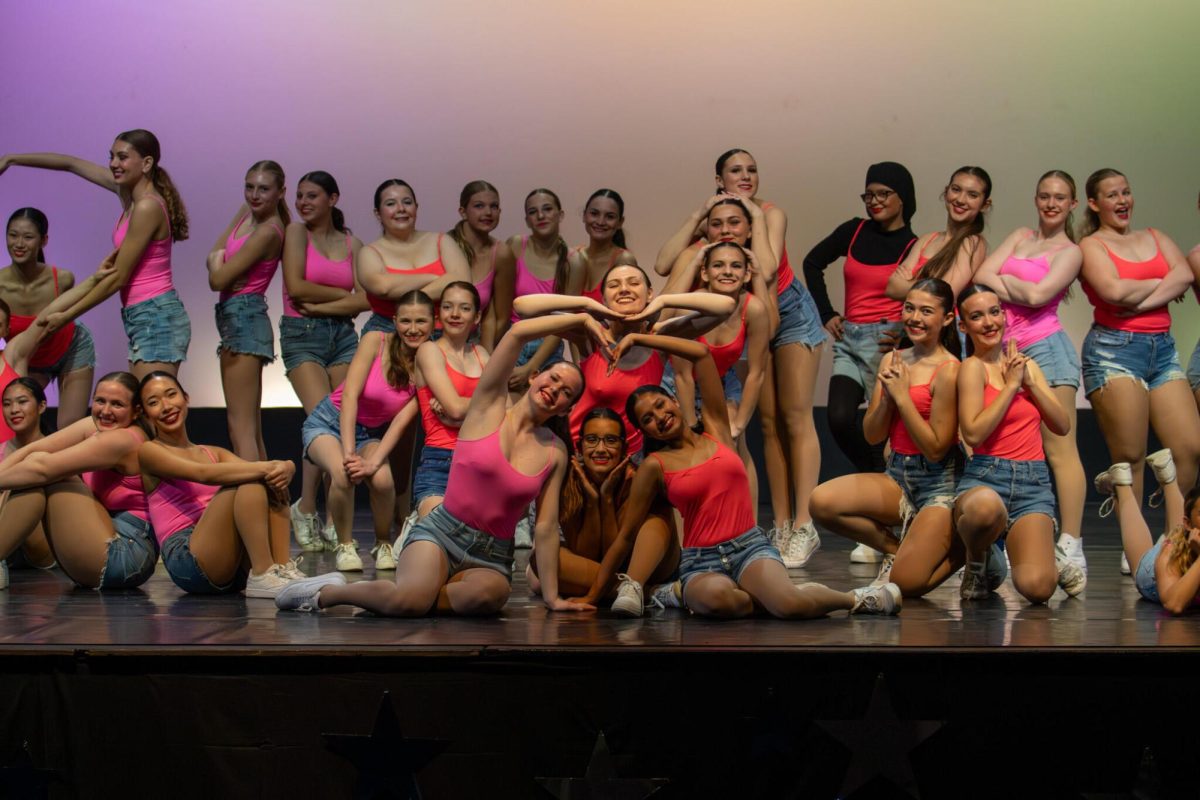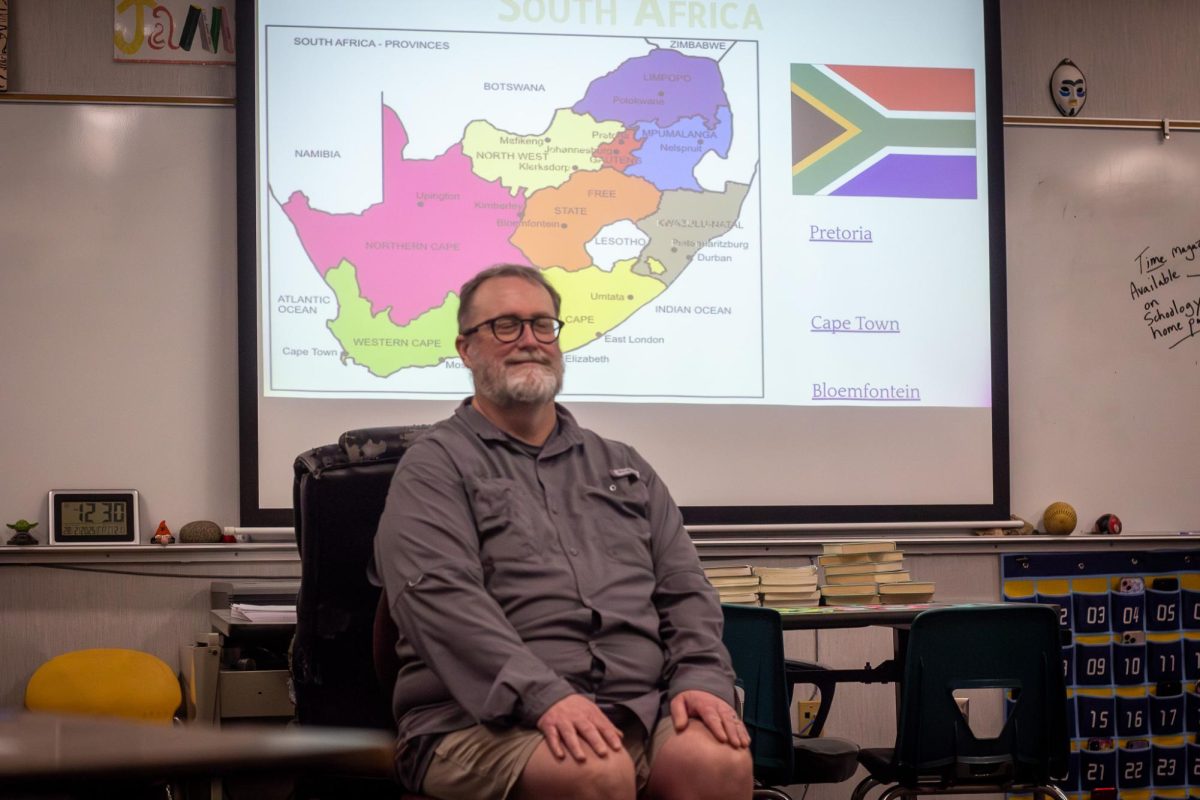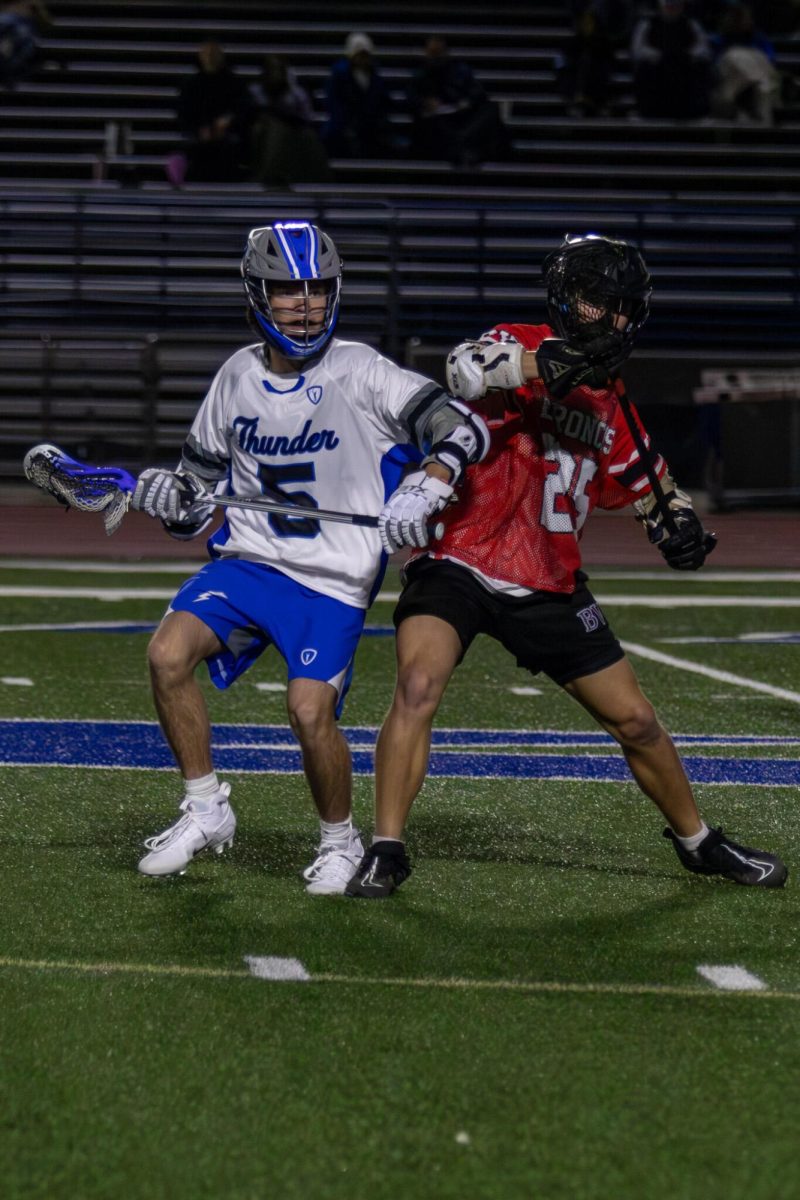HYBRID LEARNING: A Loss of Learning Standards and An Increase in Familial, Mental, and Social Brokenness
How the Hybrid Model could negatively impact RUSD students, staff, and parents
July 23, 2020
[opinion: CON]
For this opinion series writers were assigned an opinion to cover.
This article may or may not reflect their personal preferences for the hybrid model of learning.
To read the opposing side click here: LINK
Most students spend the end of their summer dreading school getting back into session but as soon as the first day finally arrives, they’re filled with excitement as they yell “hi!” and “I missed you!” to all of their classmates. Now, however, the school year is going to look a lot different than it has in the past. Due to the COVID-19 outbreak, social distancing and online learning have become the new normal; although to many, normal is the last thing they’re feeling.
The initial closure of schools across the country in March, for what was supposed to be an extended Spring break, turned into a 22-week summer vacation; with students only returning to schools to return books or pick up their belongings. The distance learning that took place at the end of the year also was a very light workload for students, as work was mostly done just to raise scores and ensure a passing grade for students. There wasn’t any real accountability due to Rocklin’s unique decision to not hold students accountable for their work. While this was beneficial for students that needed more attention and help raising grades, it allowed students with sufficient grades to just skate by and, essentially, not learn anything after schools had closed.
Currently, with COVID case numbers increasing as California took halting steps to reopen, distance learning seems to be the most evident solution to the school closures, but a majority of parents and students are eager to get back into the classroom full time.
Humans crave security and normalcy, and when our routines are changed so suddenly, it can be extremely stressful. The effects of the COVID-19 outbreak have been extreme, affecting every person in a unique way; from the losses of jobs to, even maybe, the loss of a loved one. Regaining a sense of normality is definitely on the top of the priority list in many aspects right now, like the reopening of restaurants and other businesses, and more crucially to the youth of America, the reopening of schools.
In the early phases of distance learning in March, students were distraught by the loss of in person learning. According to an article from the Sacramento Bee, “Telephone calls and texts to Wellspace Health’s Suicide Prevention and Crisis line from across California increased by 40 percent between February and March amid the coronavirus crisis.” These calls came from people who have lost their jobs, homeless people, and, notably, from students struggling with their virtual classes. Additionally, according to Ed Source, students say, “they feel overwhelmed, and not just about the health of their family and friends due to the coronavirus. Their parents might be newly unemployed, they might be falling behind academically, they can’t see their friends, or they might be trapped at home in an abusive family situation.”
Not every student has a conducive environment to do school work at home, or a supportive family to help them through these tough times. Many students’ lives have been completely turned upside down, leading to mental health issues such as anxiety and depression. The impact here is huge, and chances are with any school model that isn’t the “normal” model, students will continue to suffer through these issues. With more stress and an increased feeling of isolation due to online learning, students may fall behind in classes where they might otherwise thrive if learning at school in a safe and productive environment.
I feel like if we are going to have an all online option, the kids who want to go to school should be able to go back all five days, Kurt said.
For a while, the plans for the upcoming 2020-2021 school year were completely up in the air, but on July 8th, the Rocklin Unified School District (RUSD) Board of Trustees deliberated and made the decision to go forward with a hybrid model for this year.
This model would consist of two types of learning; online and in the classroom. Students would attend school for part of the week, and do distance learning for the remainder. This would lower the number of students in one place at a time, allowing for more social distancing and, hopefully, a safer environment overall.
While this model has a lot of positive components, such as the ability to socially distance while still having some in-person learning, there’s a lot of uncertainty leaving parents and students somewhat disappointed.
With all the suspense and wonder regarding what this school year would look like, students have been hoping for a normal return to our campuses. Wanting to regain a sense of normality and a consistent schedule myself, I was trying to be optimistic that we would have a full five day school week in person. Kurt Frazier, a senior this year at Rocklin, agreed that it’s a little bit disappointing to have the beginning of the year be partially virtual now.
“I was looking forward to having a real school year and being able to socialize and have a fun, complete senior year experience… I feel like if we are going to have an all online option, the kids who want to go to school should be able to go back all five days.” Kurt said.
In an attempt to open up as many options as possible to parents, the school district sent out a notice for parents to register their students in the Rocklin Virtual Campus (RVC) program, to ensure a fully online option for students if they didn’t wish to return to in person learning. Kurt feels that this division of students should allow for those that do wish to do in-classroom learning to be able to be on campus full time. A large majority of the parents in the district were in favor of the full week on campus, as well. In fact, out of the 9,806 responses collected from a survey of district parents, 60.5 percent prefer the full week of in person learning over the hybrid model (RUSD Board).
There’s also lots of speculation around whether or not all this hassle will make a difference in slowing the spread of the virus. According to UC Davis Health, “asymptomatic transmission may occur and has contributed to a limited amount of transmission of COVID-19 infections…this is generally less than individuals with symptoms.” For those who are asymptomatic, the spread is less likely, and with social distancing regulations in place, a full five day week could be plausible. People in good health with no underlying medical issues are also less likely to exhibit severe symptoms of the virus. The students and families advocating for the full return to school are confident that the impact of COVID-19 would be minimal, and that those with greater concern can protect themselves as needed. As of July 22, according to the Placer County Covid Dashboard, there have only been twelve deaths in Placer County. The amount of terminal cases of COVID-19 have been extremely low in our area, and the recovery rate is also very high, posing just as much of a threat to those in good health as a common cold or flu.
On campus schooling has been crucial in the past, as family dynamics vary from students having two parents who work full time, to single parents working full time, and everything in between. Schools have almost taken on a ‘daycare’ role for some families, and a hybrid model would not be practical for those families for which this is a reality. Younger students can’t facilitate their learning on their own, and for those days of the week where they are at home it might be difficult, causing kids to fall behind. Schools also provide breakfast and lunch programs for their students, and for some this is essential. Not every student will have the means to prepare their own food while their parents are working. Of course, families will adapt and change to fit their own needs, and maybe find help along the way, but at what expense? Changing jobs, or taking off more time to be at home to help teach their own children may become a reality for many families.
In addition to the job and food related family issues, parents will likely have to become more involved in their children’s learning, which could also be difficult for both the parents and the students. Not every parent is made to be a teacher in the same way that our RUSD staff are, and this could become a new challenge for parents to tackle. I know for myself personally, if my dad had to teach me things for school, we would end up arguing more than learning.
On top of the potential increased workload for parents, the teachers now have to prepare extra lesson plans and instruction to run their classes effectively. Some teachers will likely have to revamp their entire curriculum, as students will only see teachers a few times a week in class. Video lessons, online assignments, online assessments, and Google Hangouts may become essential to the learning process. There’s potential for many in class assignments to get scrapped or adjusted to become doable virtually, and any class that focuses on tangible assignments will become more difficult to work through. This work that the teachers will be doing to remodel their curriculum could be beneficial, as the schools would be more prepared for distance learning in the future as it comes up, but with so much uncertainty surrounding COVID-19 regulations it may not even be needed. The RUSD Board of Trustees included the plan for a revisit at opening the school up for the five day week after the first quarter of school, if county and state guidelines would allow it.
Not only are lesson plans and curriculum going to change the learning experience for students, but the school experience will change in social aspects as well. All school functions such as rallies and assemblies are suspended with the hybrid model, until it could be feasible to hold such large gatherings again. Although this is currently a necessary change to help implement social distancing, it will drastically affect school morale and unity. There will be no way to give students that “We Are Rocklin” experience without having the traditions that have led students through their education in years past.
Angela Passalaqua, Commissioner of Special Programs this year for the Associated Student Body, in says, “I think the overall vibe of the school will be pretty down because ASB isn’t able to put on events like dances or rallies and that’s what makes the “We Are Rocklin” experience, in my opinion. I know in ASB we’re trying really hard to come up with fun activities to do for the school but we’re so limited. It’s definitely not the senior year I was hoping for.”
These standards of distance learning and the hybrid model may be a small and temporary change or it could become the new norm for school for many years to come. Many other aspects of school culture can and will also be affected, such as team morale and club culture. Social distancing could become a permanent regulation for schools, and these aspects of school culture could never be the same. If there are no extracurricular events for students to look forward to, this could add to the students stress and the mental health problems could worsen.
A lack of socialization for young students could become an issue for them in their lives later on, especially when paired with the difficulty they could face during their learning. Learning to work in groups and get work done at school in real time are valuable skills that we will use as adults in our everyday lives. There are so many extensive impacts from the COVID-19 outbreak, and we don’t really know how things will be affected long term. But, we do know that the learning process and environment will be dramatically changed, and not necessarily for the better.
As things continue to develop and change, the hybrid model could be altered, or the model used for schools in the Rocklin District could change all together. However things change, it is important that the three main factors for students and staff are considered in even weight; “physical safety, student learning, and social-emotional and mental health.” (RUSD Board Presentation, July 8, 2020) Physical safety of students and staff is a crucial aspect of the learning process, but arguably mental health is just as important, as poor mental health can lead to poor physical safety, and more pressing and long-term issues.
Some would argue that a hybrid model is our best option for this upcoming school year, and to them I would say that by choosing a model that doesn’t drastically decrease the rate of the spread of COVID any better than the five day week, it’s not worth the impending risk that goes along with it. The mental health of the students will substantially decline, stress and struggle will increase within the homes, and an overwhelming brokenness will continue, negatively impacting the world for years to come.
To read the opposing side click here: LINK
References
- Centers for Disease Control and Prevention: https://www.cdc.gov/coronavirus/2019-ncov/daily-life-coping/share-facts.html
- UC Davis Health: https://health.ucdavis.edu/coronavirus/resources/covid-19-faqs-for-health-professionals.html#:~:text=asymptomatic%20transmission%20may%20occur%20and,than%20individuals%20with%20symptoms.
- Sacramento Bee: https://www.sacbee.com/news/coronavirus/article241800966.html
- Ed Source: https://edsource.org/2020/student-anxiety-depression-increasing-during-school-closures-survey-finds/631224
- Placer County Covid Dashboard: https://placer.maps.arcgis.com/apps/opsdashboard/index.html#/2e0154ae8a764c2fb8cccc5b58d5ce8e



